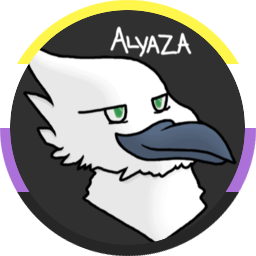It began in late September 2022. I was just recovering from a severe case of COVID-19 when Hurricane Ian hit my hometown in southwest Florida. My wife and I evacuated to Miami for a week and watched the damage unfold on various news channels. When we returned to our home in Fort Myers a week later, we were shocked by the devastation. The scenes were absurd. There were huge fishing boats suspended like toys from mangrove and palm trees, entire homes floating in the middle of San Carlos Bay, the famous causeway to Sanibel Island ripped in half, and the town of Fort Myers Beach utterly flattened. But our house, albeit without power, made it through the storm relatively unscathed.
One evening amid the power outage, I happened to be outside on the patio reading by headlamp when I began noticing my jaw clenching and tightening up. I was suddenly having difficulty controlling my tongue, lips and jaw. I came inside and asked my wife if I might be having a stroke. Beyond my Covid experience and the wreckage of the hurricane, this was an extremely stressful time in my life. As a philosophy professor, I had just published a new book that was generating a modest buzz, and it seemed as if I was being invited to give talks all over the place. Always an anxious traveller, I was scheduled to fly in rapid succession from Madison, Wisconsin to Birmingham, England and then to Sweden for a talk in Stockholm, then to Linköping for another talk and back to Stockholm again for a third. This, in addition to my normal work duties and some major upheavals in my personal life, appeared to short-circuit me physically and emotionally.
My first thought was that I had temporomandibular joint disorder (TMJ) from excessive jaw clenching. I scheduled appointments with numerous dentists, who confirmed that I was a jaw clencher and created an occlusion splint to wear at night. But the movements continued, and the pain was getting worse. My tongue was moving constantly, and I noticed it affecting my speech with slurring and a pronounced lisp. I started chewing gum to occupy my tongue. The anxiety about what was happening to my body reached such a breaking point that I cancelled all my trips and gave my talks virtually via Zoom. I scheduled an appointment with a psychiatrist, who recommended I up the dose of the antidepressant Zoloft, a selective serotonin reuptake inhibitor (SSRI), a version of which I had been taking for well over two decades. But things got only worse. The increased dose of Zoloft made me feel dissociated and dangerously impulsive. Ativan was added to help take the edge off, but the spiral of depression and anxiety deepened. I considered checking into a psychiatric hospital. What was happening to me?
In a panic, I went to the emergency department of the local hospital to be checked out and was quickly dismissed as someone suffering from work-related stress and maybe needing some botulinum toxin injections (‘Botox’) to ease the movement of my jaw. Then my wife began to do some research and suggested that perhaps the uncontrolled facial movements were the result my long-term use of SSRIs, the dosage of which I had just increased. I was unconvinced, assuring her that those kinds of side-effects came from antipsychotic and neuroleptic medications, not the relatively benign SSRIs that nearly every friend and colleague I knew had taken at one time or another. But then I started doing some digging and read reports that, although rare, an abnormal movement disorder called tardive dyskinesia (TD) could emerge from long-term use of SSRIs. I went back to the emergency department the next day, received blood work and a CT scan, all of which came back normal, with a suggestion that it may in fact be TD, and a referral to a neurologist. It was at this point that I officially entered the dehumanising maze of the biomedical industrial complex and encountered the so-called ‘blind spot’ in neurology, where a neurological disorder exists that is incompatible with neurological disease.
Having suffered a massive heart attack in my late 40s, I am no stranger to dealing with health emergencies. But this experience has been different in kind. With a heart attack there are clear medical interventions, in my case, an angioplasty and a strict medication protocol. But over the span of a year and half, the many neurologists I saw didn’t just not know how to treat me; they couldn’t even come to a consensus about what I had. I left each consultation feeling more anxious and alone, to such a degree that I became suicidal for the first time in my life.
I slogged through my days and weeks trying to cope with my condition. My mouth, jaw and tongue felt uncanny, like foreign objects that didn’t belong to me and that I had no control over. This lack of control affected my ability to move through the world, anticipate future projects or even relate to others in my life. All of it was collapsing.
As my condition progressed, I found I could no longer eat without food falling out of my mouth, and I could no longer lecture with any of the fluency and precision that I had long taken for granted. The body that had propelled me effortlessly forward through a kind of tacit proprioception, what Maurice Merleau-Ponty called the ‘I can’ (je peux), was replaced with an awkward and debilitating sense of ‘I can’t’. This experience kept me from dissolving into the flow of everyday life, transforming me into what Sartre called a ‘body-for-others’ (corps pour autrui), a stigmatised object, self-conscious and filled with shame. And the more I internalised this judgment, the more I was sucked into a feedback loop of isolating behaviour and feelings of self-reproach that further intensified my suffering. I found myself chewing gum in a desperate attempt to disguise the uncontrolled jaw and tongue movements, and even took comfort in wearing pandemic masks when out in public. All of this illuminates the ways in which shame is fundamentally a social mood, felt by embodied beings who inhabit a shared world.


